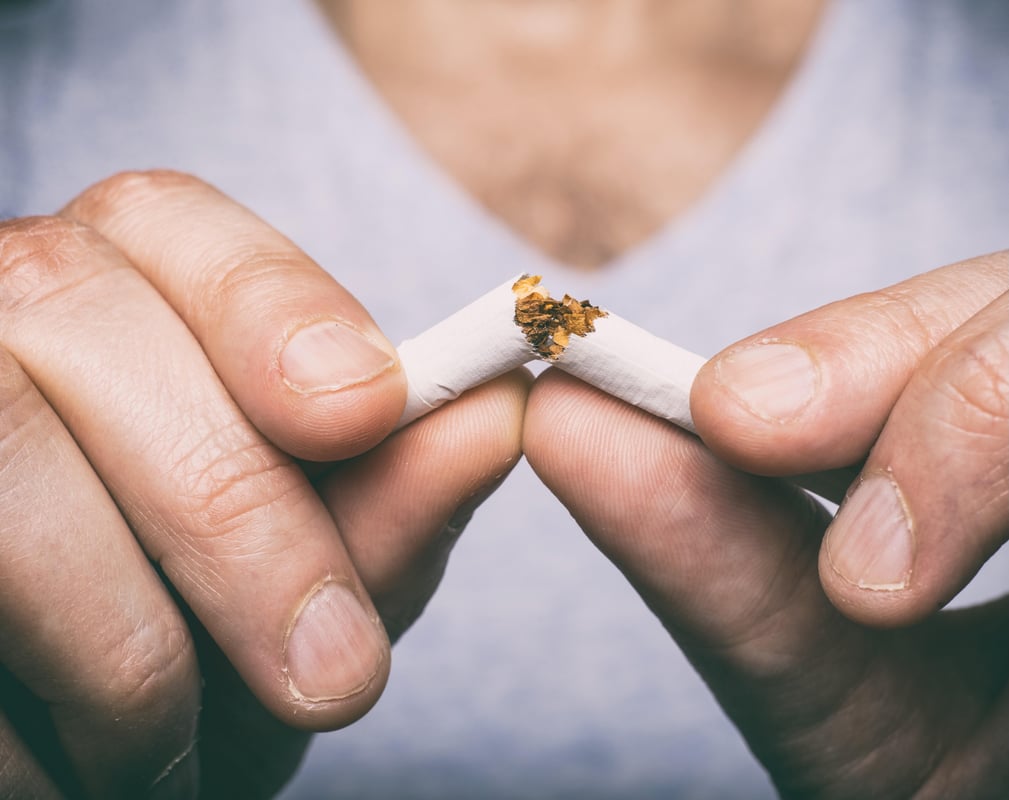In Poorer Households, Quitting Smoking May Help Boost Food Supply

THURSDAY, May 4, 2023 (HealthDay News) -- Quitting smoking may leave you with more money for food.
Having a tobacco smoker quit is not just a boon to lung health. In poorer families, it can also help prevent hunger, according to new research from the University of Minnesota School of Public Health.
“We aimed to explore if tobacco cessation could improve food security,” said lead author Kaitlyn Berry, a PhD candidate. “Tobacco is expensive and addictive; in the U.S., on average, a pack of cigarettes currently costs about $8 -- $240 per month for a pack-a-day smoker.
“This means that when someone quits smoking, they can save a lot of money that could instead be used for other expenses,” Berry added in a school news release.
Tobacco use and hunger are major threats to U.S. public health, according to the study. They inequitably affect low-income households and people of color.
About 10% of all U.S. households don’t have enough food. Roughly one-third of households below the poverty line had hunger issues in 2021, the researchers reported.
At the same time, people who are socially disadvantaged are more likely to smoke cigarettes, partly because of aggressive marketing by the tobacco industry to low-income groups. Uneven access to smoking-cessation programs is another contributor.
The research team noted that 20% of adults with a household income under $35,000 smoke cigarettes. Yet only 6% of adults in households making over $100,000 smoke.
“Our study shows that quitting smoking leads to a lower risk of household food insecurity, and it points to a new avenue for promoting food security -- increasing access to evidence-based smoking cessation interventions,” Berry said.
For the study, the researchers used data from the Current Population Survey, a monthly survey by the government.
About 82% of more than 71,000 adults were nonsmokers. Another 2% were recent quitters. The other 16% were smokers.
Researchers found that smokers had 1.85 times the risk of household hunger compared to those who had recently quit.
Continuing smokers also had a higher probability of food shortages -- 20% compared to 11% for recent quitters.
The authors recommended that government and nonprofit food assistance programs promote cigarette cessation strategies a part of their assistance. These programs could connect smokers to tobacco-use quit lines, cessation medications and behavioral therapy, they said.
The study results were recently published in the Annals of Epidemiology.
More information
The U.S. National Institutes of Health has more on hunger in America and food accessibility.
SOURCE: University of Minnesota, news release, May 2, 2023
Related Posts
Muchos adolescentes de EE. UU. están en crisis de salud mental, según un informe
JUEVES, 27 de abril de 2023 (HealthDay News) -- Los adolescentes de EE. UU....
Artificial Intelligence Rarely Passes Radiologists’ Mock Exams
TUESDAY, Dec. 27, 2022 (HealthDay News) -- An artificial intelligence candidate...
Standard Protocol Cuts Opioid Rx After Pediatric Appendectomy
WEDNESDAY, Feb. 23, 2022 (HealthDay News) -- A standardized prescribing protocol...
CDC: Vaccinated More Likely to Die During Omicron Wave If They Got J&J Shot
FRIDAY, March 25, 2022 (HealthDay News) -- The COVID-19-related death rate among...
